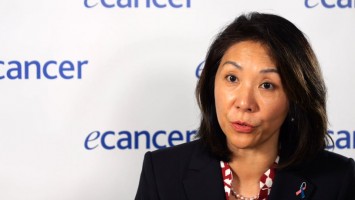At this ASH 2017 meeting we’ll be presenting an updated analysis and the final overall survival analysis for the ASPIRE clinical trial. The ASPIRE clinical trial took the standard of care of lenalidomide dexamethasone and added carfilzomib in the experimental triplet therapy. A very large trial, 792 patients. We previously reported an increase in overall response rate, a tripling of complete responses, improved progression free survival and improved health related quality of life for patients receiving the triplet therapy. At this meeting we will present an update on the progression free survival, which is now 9.5 months in favour of triplet therapy, and we will present for the first time overall survival, which now shows a 7.9 month improvement in overall survival for all patients in the trial but is also consistent across most subgroups of patients with one exception - the high risk patient population did not seem to have a significant advantage but the numbers are so small that we think that this is just likely statistical.
What could be the impact of these new data?
There have been two phase III clinical trials now in which carfilzomib has been compared to standard of care. These are the first two studies which have shown overall survival impact. All of the other novel drug combinations to date have just shown progression free survival. So we think this is an important step which tells you you can add a third drug to therapy without compromising subsequent outcomes and that your patients will live longer, not just stay in remission longer.








